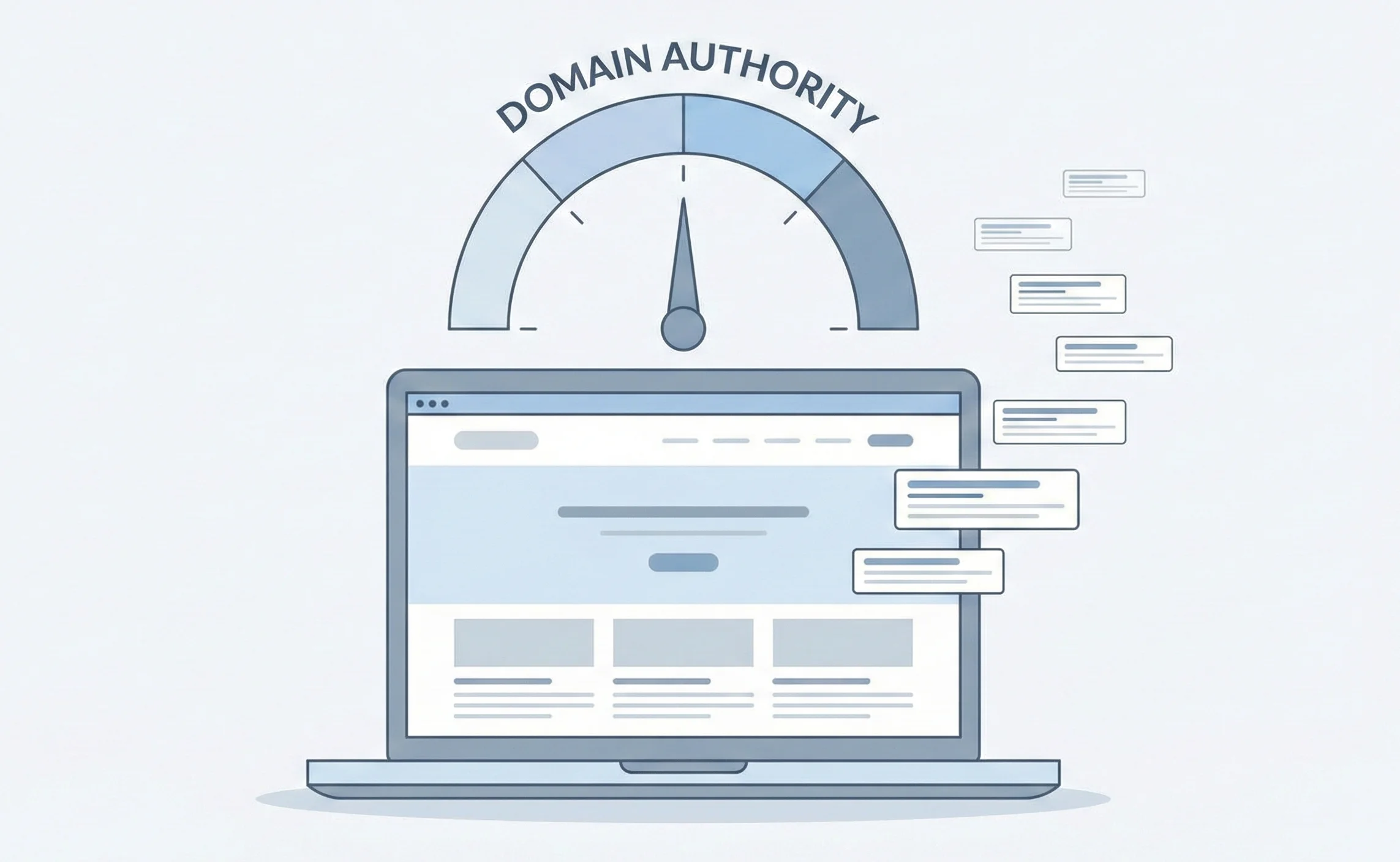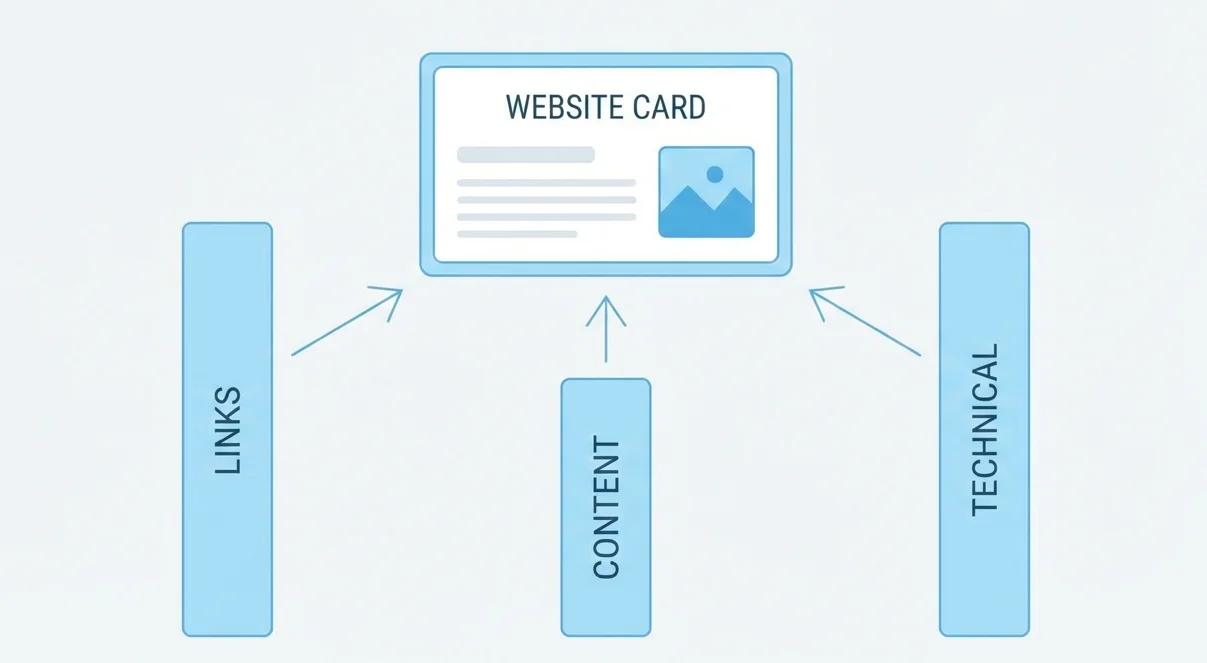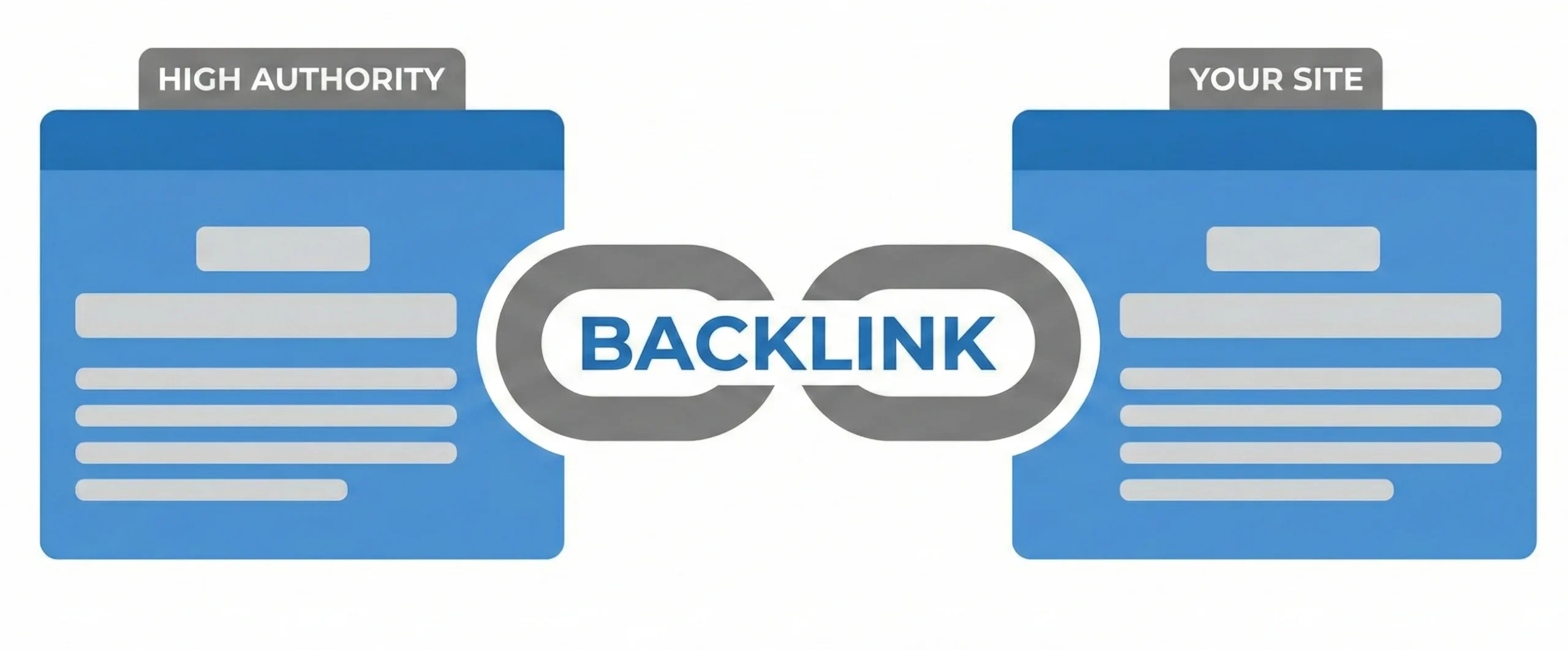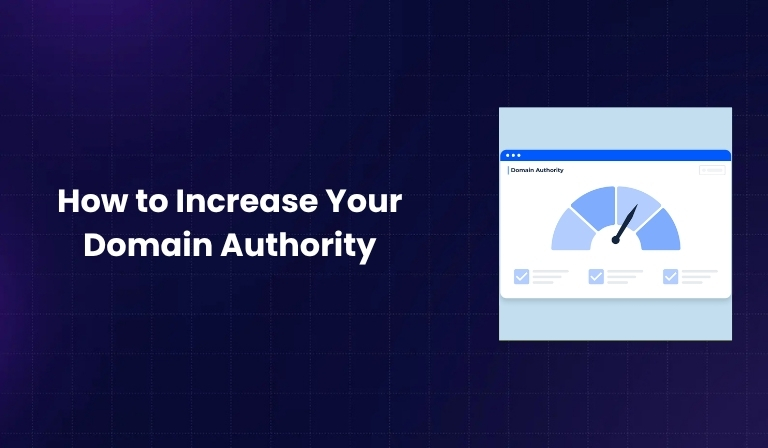Improving your website’s Domain Authority (DA) is one of the smartest ways to boost your visibility on search engines like Google. A higher DA score means better chances of ranking for competitive keywords, gaining more organic traffic, and building trust with your audience. But the good news is—you don’t need to be an SEO expert to do it. In this blog, we’ll break down three easy and effective steps you can follow to increase your Domain Authority and grow your website’s presence online. Let’s get started!
What Is Domain Authority?

Domain Authority (DA) is a search engine ranking score developed by Moz that predicts how likely a website is to rank on search engine result pages (SERPs). The score ranges from 0 to 100, with higher scores indicating a greater ability to rank.
Moz calculates this score using several factors, including linking root domains, total links, and other SEO indicators. While DA isn’t a metric used directly by Google, it gives a reliable estimate of your website’s overall SEO health and competitiveness.
Why Is Domain Authority Important?

Domain Authority is important because it serves as a benchmark for your website’s credibility and authority on the internet. A higher DA usually translates into:
- Better search visibility
- Increased organic traffic
- More trust from users and other websites
- Higher chance of ranking for competitive keywords
It’s especially useful when comparing your site with your competitors and identifying areas where your SEO strategy needs improvement.
Domain Authority vs. Page Authority
Domain Authority measures the overall strength of an entire domain, while Page Authority (PA) focuses on the ranking strength of an individual page.
| Metric | Domain Authority (DA) | Page Authority (PA) |
| Scope | Entire domain | Single page |
| Best used for | Competitive analysis | Ranking specific pages |
| Influenced by | Link profile, SEO | Internal links, page SEO |
When planning your SEO strategy, it’s important to work on both DA and PA for long-term success.
Also check: What is SEO Marketing? [A Comprehensive Overview]
Factors That Affect Domain Authority

Understanding what influences your Domain Authority helps you take the right steps to improve it. Major factors include:
- Backlink Profile: The number and quality of backlinks pointing to your site.
- Internal Linking Structure: How well your pages are connected internally.
- Content Quality: Relevant, informative, and regularly updated content.
- Site Performance: Page speed, mobile-friendliness, and user experience.
- Technical SEO: Proper use of meta tags, structured data, and sitemaps.
How to Increase Domain Authority in 3 Easy Steps
Improving your Domain Authority doesn’t have to be complicated. Here are three straightforward steps to get started:
Step 1 – Build High-Quality Backlinks
Backlinks are one of the most critical ranking factors. Focus on:
- Earning links from trusted websites in your niche.
- Guest blogging on high-authority blogs.
- Building relationships with influencers and industry experts.
- Using HARO (Help a Reporter Out) to get quoted in news outlets.
Step 2 – Improve On-Page SEO and Content Quality
Your content needs to be optimized for both users and search engines. Here’s how:
- Use relevant keywords naturally in your content.
- Structure your posts with headings, bullet points, and visuals.
- Add internal links to related content.
- Keep your content fresh and updated regularly.
- Use meta titles and descriptions effectively.
Step 3 – Strengthen Site Structure and Internal Linking
A good internal structure helps search engines crawl your site and improves user navigation. Focus on:
- Linking to important pages from your homepage and blog posts.
- Using descriptive anchor text.
- Avoiding broken links and orphan pages.
- Creating silos of related content (topic clusters).
Bonus Tips to Boost Domain Authority Faster
If you want to go beyond the basics, here are a few more strategies:
- Disavow toxic backlinks that may hurt your ranking.
- Get listed in high-quality business directories and resource pages.
- Ensure your site is mobile-friendly and loads fast.
- Avoid duplicate content at all costs.
These steps help build trust and signal to search engines that your site is reliable and authoritative.
How to Check Your Domain Authority
You can check your current DA score using the following tools:
These platforms also show backlinks, referring domains, and keyword rankings—essential for SEO planning.
FAQs
1. What’s a Good Domain Authority Score?
- 0–20: New websites or low authority
- 21–40: Decent, but needs improvement
- 41–60: Competitive authority
- 61–80: High-authority sites
- 81–100: Top-tier websites like Google, YouTube, etc.
2. How Long Does It Take to Improve Domain Authority?
It can take 3–6 months or longer, depending on your SEO efforts and competition.
3. Can Domain Authority Decrease?
Yes. If you lose backlinks, publish less content, or get penalized, your DA can drop.
4. Is Domain Authority a Google Ranking Factor?
No. DA is not used by Google. However, it correlates strongly with higher rankings.
5. Are There Alternatives to Moz’s Domain Authority?
Yes. Other similar metrics include:
- Ahrefs’ Domain Rating (DR)
- SEMrush’s Authority Score
- Majestic’s Trust Flow & Citation Flow
Final Thoughts
Increasing your Domain Authority is not a quick fix—it’s a long-term investment. By building quality backlinks, optimizing your content, and improving your site’s technical SEO, you can grow your DA steadily and sustainably.
Stay consistent, focus on quality over quantity, and track your progress over time. With the right strategy, you’ll see not only a higher DA score but also better search rankings, more traffic, and greater brand authority.

Passionate about blogging and focused on elevating brand visibility through strategic SEO and digital marketing. Always tuned in to the latest trends, I’m dedicated to maximizing engagement and delivering measurable ROI in the dynamic world of digital marketing. Let’s connect and unlock new opportunities together!

